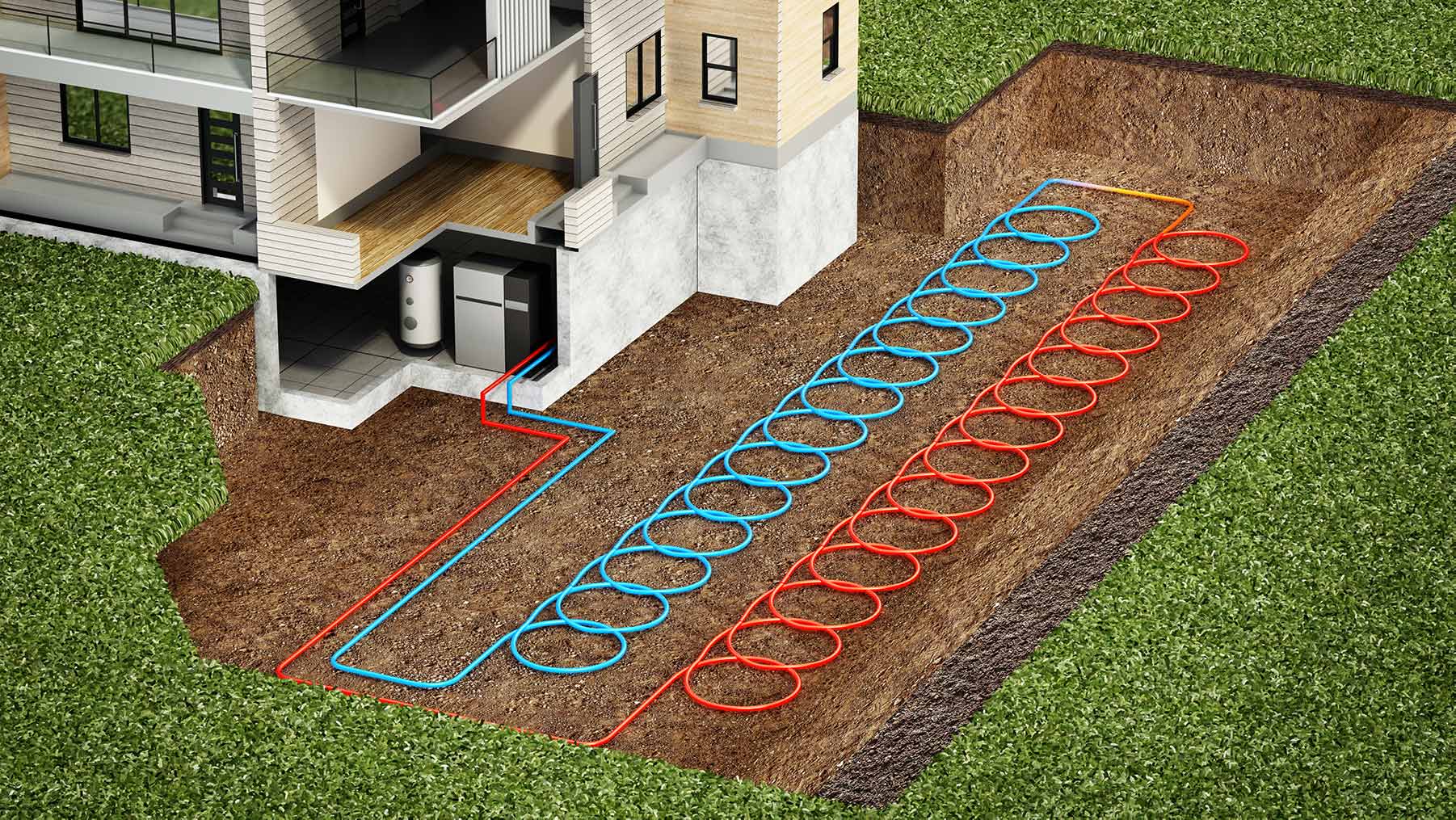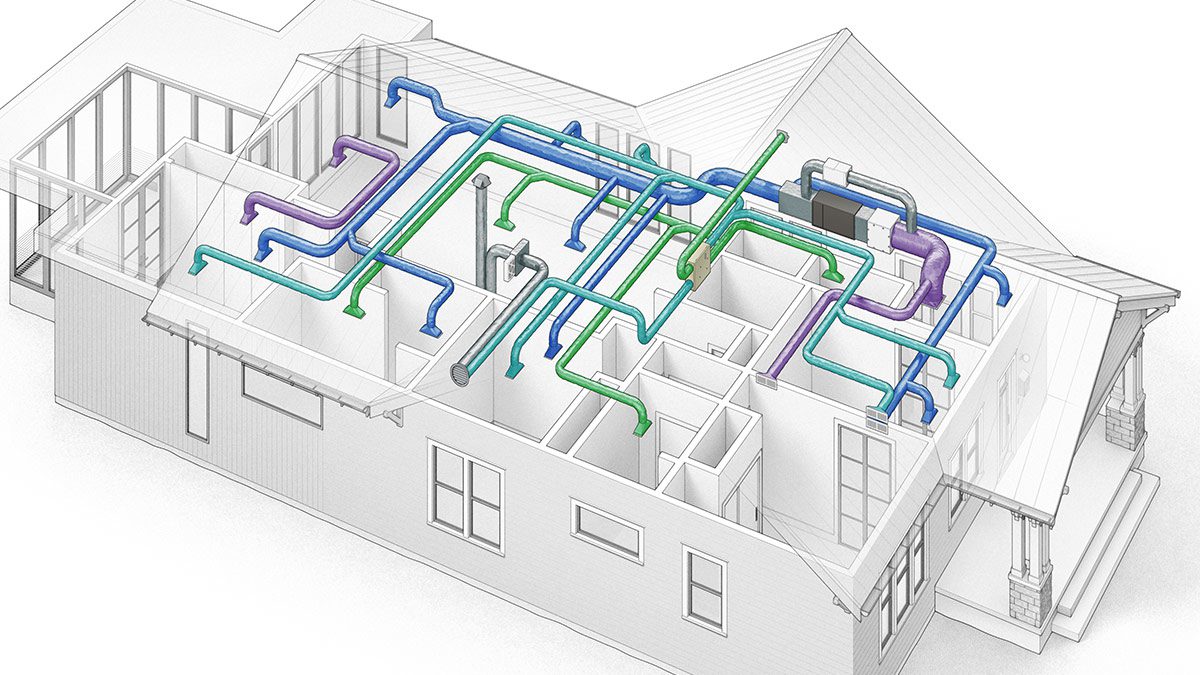Indoor air quality (IAQ) is a vital yet often overlooked aspect of modern living. Whether you’re in an office building, a healthcare facility, or your own home, the air you breathe directly affects your health, comfort, and overall well-being. With an increasing awareness of air pollution and the importance of healthy environments, the role of HVAC (heating, ventilation, and air conditioning) systems in ensuring clean and fresh indoor air has become more critical than ever. A well-maintained HVAC system does more than just regulate temperature—it also plays a significant role in improving and maintaining indoor air quality. In this article, we’ll explore everything you need to know about air quality in HVAC systems, from how they affect health to the latest technologies that can improve air quality.
1. Understanding Indoor Air Quality (IAQ) and Its Importance
Indoor air quality refers to the condition of the air within a building or enclosed space. It encompasses a wide range of factors, including the presence of pollutants, allergens, humidity levels, and overall air circulation. Poor IAQ can lead to various health problems, such as allergies, respiratory issues, asthma attacks, and even more serious conditions like cardiovascular disease.
For homeowners, office managers, or facility operators, ensuring proper IAQ is essential to fostering a healthy environment. The key to achieving good IAQ is a well-functioning HVAC system that can effectively filter, circulate, and refresh indoor air while controlling temperature and humidity.
2. Common Indoor Air Pollutants
The first step in improving air quality is understanding the pollutants that commonly inhabit indoor spaces. These include:
-
Dust and Pollen: Both can cause allergic reactions and aggravate asthma. HVAC systems with high-quality filters can help trap these particles before they circulate throughout the building.
-
Mold and Mildew: These fungi thrive in areas with high humidity and inadequate ventilation. HVAC systems equipped with dehumidifiers can help reduce the moisture levels that encourage mold growth.
-
Volatile Organic Compounds (VOCs): VOCs are emitted by household products like paints, cleaning supplies, and furniture. These gases can contribute to headaches, dizziness, and long-term health issues. Proper ventilation and filtration can reduce VOC concentrations.
-
Carbon Dioxide (CO2): High levels of CO2 can occur in spaces with inadequate ventilation, leading to drowsiness, fatigue, and poor concentration. A ventilation system that brings in fresh outdoor air can help mitigate this issue.
-
Particulate Matter (PM): Fine particles in the air, such as smoke and soot, can penetrate deep into the lungs and cause respiratory distress. HEPA filters in HVAC systems can capture these particles, improving air quality.
3. How HVAC Systems Impact Air Quality
HVAC systems play a central role in controlling indoor air quality by filtering and circulating air. Here’s a closer look at how different components of HVAC systems contribute to IAQ:
-
Filtration: Filters are the most straightforward way HVAC systems improve air quality. Depending on the type of filter, they can remove particles like dust, pet dander, pollen, and even bacteria and viruses. The efficiency of a filter is measured using a system called the MERV (Minimum Efficiency Reporting Value) rating, which indicates the filter’s ability to capture airborne particles. The higher the MERV rating, the more efficient the filter. High-MERV filters (13-16) are ideal for trapping small particles, but they must be carefully matched with the HVAC system to avoid obstructing airflow.
-
Ventilation: Proper ventilation is crucial to maintaining healthy IAQ. HVAC systems equipped with fresh air intake capabilities can draw in outdoor air to replace stale indoor air, ensuring that the air remains fresh and oxygen-rich. This is particularly important in tightly sealed buildings, where the natural exchange of air might be limited.
-
Humidity Control: Both high and low humidity levels can affect air quality. Excess moisture can encourage mold growth, while dry air can irritate the respiratory system. HVAC systems with humidifiers and dehumidifiers can regulate humidity levels, promoting a more comfortable and healthier indoor environment.
-
Air Purification: Modern HVAC systems often include built-in air purifiers, such as UV-C light systems and ionizers. UV-C lights can kill bacteria and viruses, while ionizers can attract and neutralize airborne particles. These additional layers of purification can be particularly beneficial for environments that require a high standard of air quality, such as hospitals, schools, and offices.
4. Factors Affecting HVAC-Related Air Quality
While HVAC systems are designed to improve indoor air quality, several factors can impact their effectiveness. Ensuring that your HVAC system is properly maintained is essential to getting the best performance out of it:
-
Filter Maintenance: Filters need to be replaced or cleaned regularly to ensure they are functioning at their best. Dirty or clogged filters can reduce airflow and allow pollutants to pass through, negating the system’s air-purifying capabilities.
-
Duct Cleaning: Over time, ducts can accumulate dust, mold, and other debris, which can be released back into the air when the HVAC system operates. Periodic duct cleaning helps ensure the system is circulating clean air and maintaining optimal performance.
-
System Sizing: An HVAC system that is too large or too small for the space can struggle to maintain consistent airflow and humidity levels. Proper sizing is crucial to ensuring that the system operates efficiently and does not inadvertently create IAQ problems.
-
Regular Inspections: Scheduling annual or semi-annual inspections of your HVAC system ensures that it continues to function properly and that any potential issues—such as leaks or malfunctioning components—are addressed before they can affect air quality.
5. Emerging Trends in HVAC Technology to Improve Air Quality
As awareness of the importance of indoor air quality increases, HVAC technology continues to evolve. Several exciting innovations are transforming the way HVAC systems improve IAQ:
-
Smart HVAC Systems: The integration of smart thermostats and sensors allows users to monitor and control air quality in real time. These systems can adjust the ventilation, humidity, and filtration based on current air quality conditions, ensuring that your indoor environment is always optimized for health and comfort.
-
Air Quality Monitoring: Advanced IAQ sensors can detect specific pollutants, such as CO2, particulate matter, and VOCs. These sensors can trigger adjustments to the HVAC system, such as activating air purifiers or adjusting ventilation rates, to maintain optimal air quality.
-
Energy-Efficient Air Purifiers: New, more energy-efficient air purifiers are now being incorporated into HVAC systems. These purifiers work in tandem with existing filters to provide additional layers of protection against pollutants without significantly increasing energy consumption.
-
Biodegradable Filters: In response to growing environmental concerns, manufacturers are developing filters made from biodegradable or sustainable materials. These filters can capture airborne particles as effectively as traditional options, while reducing environmental impact when disposed of.
6. Practical Steps to Improve HVAC Air Quality
In addition to choosing a high-quality HVAC system and implementing cutting-edge technologies, there are several simple steps you can take to improve IAQ:
-
Ensure Proper Ventilation: Regularly open windows and doors to allow fresh air into the space. During the colder months, use your HVAC system’s ventilation features to bring in fresh outdoor air.
-
Invest in High-Quality Filters: Choose filters with a high MERV rating for optimal air purification. Ensure that filters are replaced or cleaned according to the manufacturer’s recommendations.
-
Control Humidity Levels: Use a humidifier or dehumidifier to keep humidity levels within a healthy range (ideally between 30% and 50%).
-
Maintain Your System: Regular maintenance—such as filter changes, duct cleaning, and annual inspections—will help keep your HVAC system running smoothly and improve air quality.
Conclusion
Air quality is an essential factor in creating a healthy indoor environment, and HVAC systems are at the heart of maintaining that quality. By understanding the various pollutants that affect indoor air and taking steps to optimize your HVAC system, you can improve both the comfort and health of your living or working space. Whether you’re upgrading your system or simply enhancing your current setup with modern technologies, the steps you take today can have a lasting impact on your air quality and overall well-being. By staying proactive with system maintenance and embracing the latest HVAC innovations, you can ensure that the air you breathe is as clean and fresh as possible.




